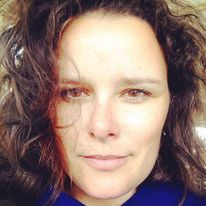| CANAL CES |
| PODCAST |
| TEMAS |
| PESSOAS |
|
Interview by: Ana Cristina Pereira and Sílvia Roque Este podcast faz parte da série de 28 podcasts realizados sobre o caso português e italiano no âmbito do projeto de investigação de 36 meses (2018-2021) (De)Othering: Desconstruindo o Risco e a Alteridade: guiões hegemónicos e contra-narrativas sobre migrantes/refugiados e “Outros internos” nas paisagens mediáticas em Portugal e na Europa, que pretendeu analisar criticamente representações mediáticas de migrantes, refugiados e “outros internos” em Portugal e na Europa, mapeando as suas interconexões com narrativas produzidas no domínio da segurança e no quadro da Guerra ao Terrorismo. O seu foco, uma análise de Portugal à luz de estudos de caso europeus profundamente afetados por ameaças terroristas (Reino Unido e França) e por fluxos migratórios/de refugiados (Itália e Alemanha), pretende investigar a construção de narrativas transnacionais de risco que permeiam a Europa independentemente da sua exposição “diferenciada”. O projeto foi financiado pelo pelo FEDER – Fundo Europeu de Desenvolvimento Regional através do COMPETE 2020 – Programa Operacional Competitividade e Internacionalização (POCI) e por fundos nacionais através da FCT – Fundação para a Ciência e a Tecnologia (Referencia Projeto: POCI-01-0145-FEDER-029997) ----- English Version This podcast is part of a series of 28 podcasts produced on the Portuguese and the Italian cases as outputs of the research undertaken in the 36 months project (2018-2021) (De)Othering: Deconstructing Risk and Otherness: hegemonic scripts and counter-narratives on migrants/refugees and ‘internal Others’ in Portuguese and European mediascapes that sets out to critically examine media representations on migrants, refugees and ‘internal Others’ in Portugal and across Europe while mapping out their interconnections with particular narratives in the field of security and within the War on Terror. Its focus – an analysis of Portugal in the light of other European cases affected by terrorist threats (United Kingdom and France) and by migrant/refugee flows (Italy and Germany) – aims to explore the construction of transnational narratives of risk pervading Europe regardless of the ‘differential’ exposure to them. The project was funded by FEDER – European Regional Development Fund through the COMPETE 2020 – Operational Programme for Competitiveness and Internationalisation (POCI), and by Portuguese funds through FCT in the framework of the project 029997 (Reference: POCI-01-0145-FEDER-029997).
Raquel Ribeiro is a journalist and scholar focused on Portuguese/Lusophone literature, cinema and culture. In this episode, she points out gaps in the mainstream media narratives that do not include the voices of Black women, in particular Africans and Afro-Brazilians. At the beginning of the episode, she discusses when she was confronted by a student that told her that her class curriculum was too whiteand asked why there were so many white Africans, such as Mia Couto and Luandino. From that moment on, she began to take a different look at these complex racial and colonial issues that were already indirectly part of the content she addressed in her classes. Summary of the podcast Raquel used to work for the Portuguese newspaper, Público, but left for the United Kingdom to obtain her PhD. During this period abroad, she realized how issues related to postcolonial theories took a long time to be more intensely worked on in Portugal. She also highlights that mainstream media suffer from what she called “mental laziness”, that is to say they do not place questions of, for example, race and gender side-by-side. This creates an emptying of the discussion, which never seems to move forward. Regarding migration issues, she mentions how the image of Alan Kurdi, the three-year-old child that drowned in the Mediterranean Sea after his family was trying to cross from Syria to Europe in 2015, was very symbolic and created a different imaginary that wasn’t the common idea of refugees in Europe, that are usually related to people that want to “steal national jobs” or associated with Islamic fundamentalists. Raquel points out how the media’s speed makes news quickly swallowed, limiting further reflection on some topics. For example, she mentions how there is little analysis of the relationships of racialized people living on the periphery, criminalization, and the issue of colonialism - which are often limited to discussions from a historical perspective. Therefore, there is no critical crossover of analysis in order to understand how historical issues can affect the current configuration of Portuguese society.
pessoas
ligações
|





 Bio of the speaker
Bio of the speaker